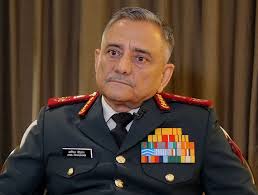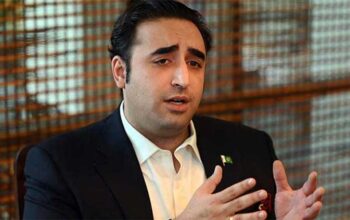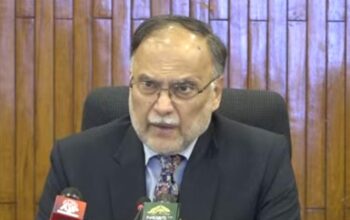By Staff Reporter
ISLAMABAD: India’s top military official has confirmed that the country lost fighter jets in a recent aerial clash with Pakistan but declined to provide a precise count, despite repeated questioning from a Bloomberg journalist during a security summit in Singapore.
Speaking at the Shangri-La Dialogue, India’s Chief of Defence Staff, General Anil Chauhan, confirmed the loss of jets but emphasised tactical lessons over numbers.
“What is important is that, not the jet being down, but why they were being down… Why they were down, what mistakes were made — that are important. Numbers are not important,” told Bloomberg. When pressed at least three times by the reporter for a specific figure, the general avoided a direct answer, focusing instead on the military’s ability to adapt.
“What I can say is that on May 7, in the initial stages, there were losses… What was important is why these losses occur and what we will do after that,” Chauhan said. “The good part is that we are able to understand the tactical mistake which we made, remedy it, rectify it, and then implement it again after two days and flew all our jets again, targeting at long range.”
Pakistan, however, said India refrained from deploying fighter jets after May 7 losses.
Chauhan reject Pakistan’s claim of downing six Indian aircraft, including four advanced Rafale jets, calling it “absolutely incorrect” without offering India’s own tally.
Pakistan, for its part, has denied losing any jets in the skirmishes, though it acknowledged minor damage to its air bases. Islamabad’s military spokespersons have stood by their assertion of significant Indian losses, deepening the dispute over the clash’s outcome.
Until now, India’s armed forces had sidestepped direct admissions of losses. Earlier this month, Air Marshal A.K. Bharti, Director General of Air Operations, addressed reporters with a measured tone. “Losses are a part of any combat scenario,” he said. “We are in a combat scenario and losses are a part of it. Question is, have we achieved our objective? Answer is a thumping yes. At this time, I would not like to comment on that (loss of jets) as we are still in combat and give advantage to adversary. All our pilots are back home.”
A day earlier Subrahmanyam Swamy, a former law minister and a vocal critic of Prime Minister Narendra Modi from within the ruling Bharatiya Janata Party (BJP), claimed in an online interview that Pakistan had downed five Indian planes, including Rafales.
Swamy pointed the finger at the quality of the French-made jets, suggesting flaws in the procurement deal championed by Modi, a charge that landed as the prime minister held large rallies in Gujarat and elsewhere, touting the operation as a victory and warning of further conflict with Pakistan.
The episode has also raised concerns about potential nuclear escalation, given both nations’ capabilities.
General Chauhan sought to ease such concerns, emphasizing the restraint shown by both sides. “I personally feel that there is a lot of space between conduct of conventional operations and the nuclear threshold,” he told Bloomberg. He elaborated, “I think there’s a lot of space before that nuclear threshold is crossed, a lot of signalling before that, I think nothing like that happened. There’s a lot of space for conventional operations which has been created, and this will be the new norm.”
He praised the professionalism of both militaries. “It’s my personal view that the most rational people are people in uniform when conflict takes place,” he said. “During this operation, I found both sides displaying a lot of rationality in their thoughts as well as actions. So why should we assume that in the nuclear domain there will be irrationality on someone else’s part?”
This stance contrasts with U.S. President Donald Trump’s repeated assertion that his mediation secured a ceasefire and averted a nuclear crisis—a claim General Chauhan indirectly challenged by noting that “channels of communication” with Pakistan remained open throughout, helping to manage the situation.
The conflict also raised questions about China’s role, given its alliance with Pakistan and its border with India. General Chauhan reported no significant involvement from Beijing. “While this was unfolding from (April) 22nd onwards, we didn’t find any unusual activity in the operational or tactical depth of our northern borders, and things were generally all right,” he said. Asked about possible Chinese intelligence support to Pakistan, such as satellite imagery, he noted, “Such imagery was commercially available and could have been procured from China as well as other sources.”
Copyright © 2021 Independent Pakistan | All rights reserved




